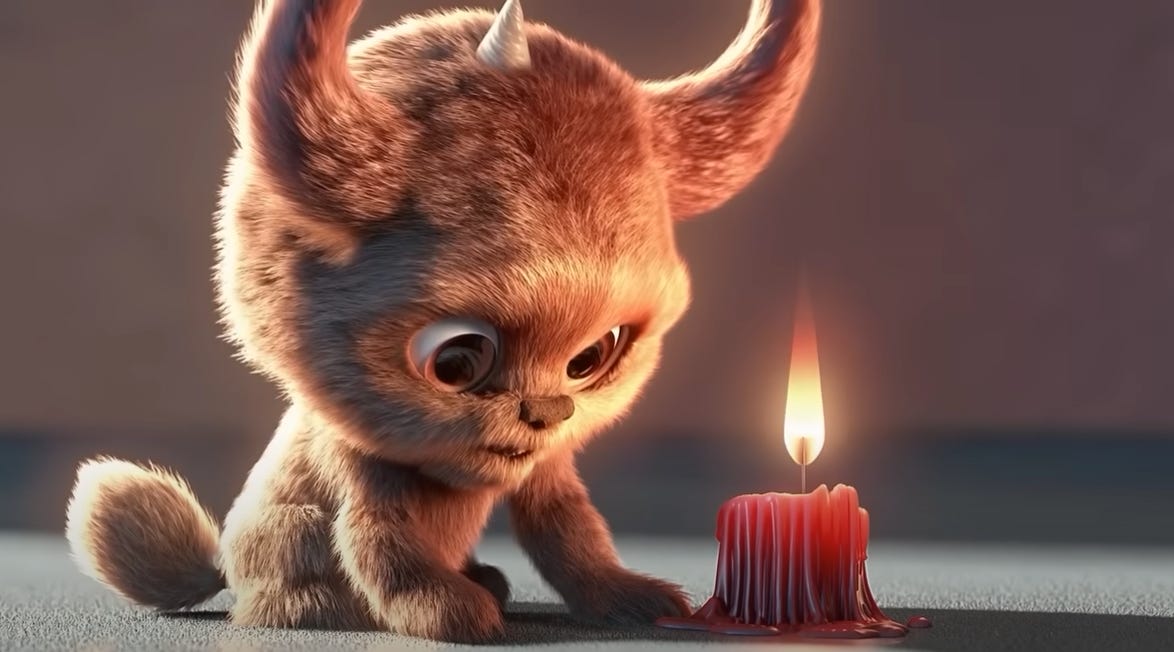Shock and Awe: OpenAI's Video Rocks Hollywood
Analyzing the impact on jobs, costs and creativity amid intense fear and excitement

(If you enjoy my deep dives, check out my other writings over at my own newsletter. Last week I ran down all the “flops, bombs and misses” in streaming TV and film in 2023. Subscribe here.)
It’s not every day that seemingly everyone I know, including a bunch of non-industry people, sends me the same YouTube video with the same, OMG, can you believe this? exclamation. After watching this . . .
. . . I then promptly sent this video to a bunch more people:
I wrote about artificial intelligence and why I became a believer in its power nine months ago, in the midst of the writers strike. Even now, I still marvel at what generative AI can create.
Sora — OpenAI’s new text-to-video application — isn’t yet open to the public, but the demo videos released on Feb. 15 show just how much generative AI has improved in the last year. Indeed, the last time I wrote about this issue, a few folks responded that AI had finite limitations. For example, one person pointed out that the movie trailer I shared only included still images. Well, Sora can now make full-motion videos!
AI is such an important issue that I should probably write about it all the time as part of the “Evil Trinity” — along with piracy and digital disruption — likely altering Hollywood cash flow in the future.
With Sora’s eye-popping videos as our prompt, I’ll try to answer the trickier question of whether we should embrace or fear this disruption heading toward us. In this issue, I will discuss:
The challenges still facing AI developers . . .
. . . and why I think AI will (quickly) overcome them
How development is outpacing skepticism
Whether it will save jobs or create jobs in entertainment
The impact on creative salaries
Protections to fight for now
First, What Do We Mean When We Say AI is 'Bad'?
I call myself an “AI pessimist,” not because I think the technology won’t work, but because I think it will. Unfortunately, using words like “good” or “bad” can lead to miscommunication when it comes to AI’s possible impact. When we talk about AI being good or bad, we’re really discussing two different things:
First, AI’s capabilities. Some people (like me) think AI will be able to match or exceed human cognitive abilities. Others point out the flaws in every GPT creation. Or they believe that true human achievement can’t be replaced by machines. Call this the “skeptics versus believers” dichotomy.
Second, AI’s impact on society. Personally, I worry that AI’s downsides will exceed the upsides. That’s what makes me a pessimist. If you think AI will lead to a utopia, you’re an optimist.
That sounds like a quad chart to me!
Note: The fourth box doesn’t really exist. But the other categories really divide the community in entertainment and beyond:






